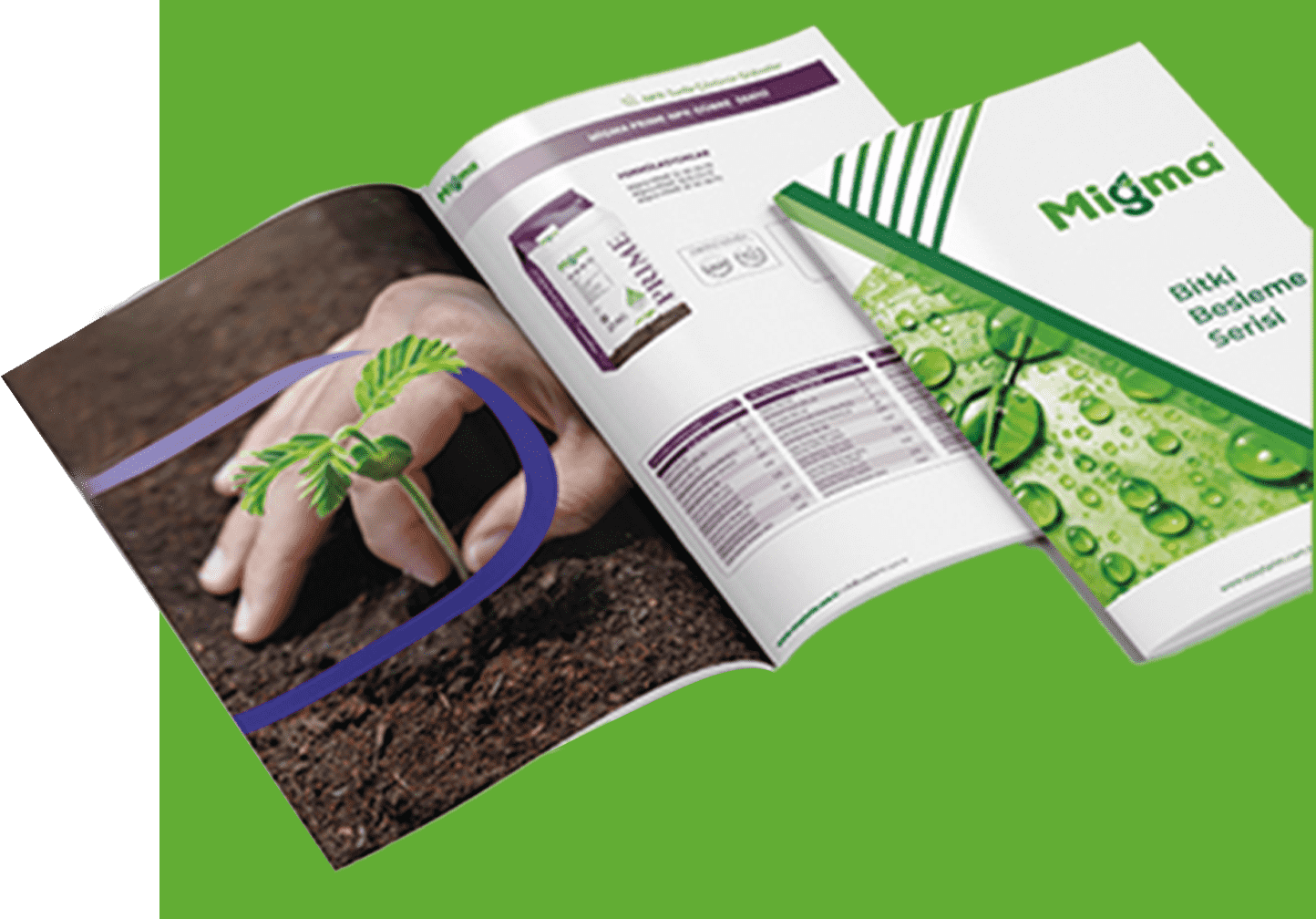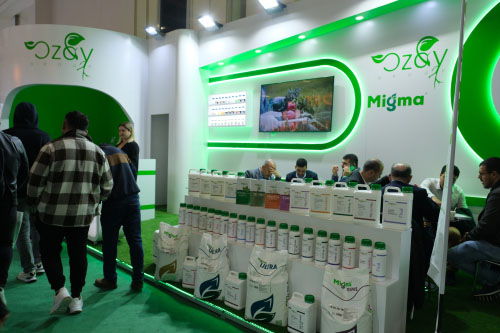Organic Fertilizer
Organic fertilizer is a type of fertilizer derived from natural substances of plant and animal origin, used to nourish the soil and support plant growth. Organic fertilizers typically consist of animal manures, compost, green manures, plant residues, seaweed, and other organic materials used for fertilization purposes. This type of fertilizer improves soil structure, enhances microbial activity, and increases the soil's water retention capacity. Additionally, unlike chemical fertilizers, it does not create harmful accumulations in the soil and causes less environmental damage.
Types of Organic Fertilizers
Organic fertilizers are categorized based on their sources. The main types of organic fertilizers are as follows:
Animal Manures: These fertilizers are derived from the excrement of animals. Manures from cows, sheep, goats, chickens, and other animals are used to produce these fertilizers. They contain both macronutrients (nitrogen, phosphorus, potassium) and micronutrients, which are essential for plant growth.
-Cow Manure
-Sheep Manure
-Chicken Manure
Compost: A fertilizer obtained by the controlled decomposition of organic waste (such as kitchen scraps, plant residues, leaves, etc.). It is a rich source of nutrients and improves soil structure.
Green Manure: Typically obtained by growing plants like legumes in the soil and then tilling them back into the soil. These fertilizers add organic matter and nutrients to the soil.
Seaweed Fertilizer: An organic fertilizer made from seaweed. It is particularly rich in trace elements and accelerates plant growth.
Worm Castings (Vermicompost): A fertilizer created by worms digesting organic matter. It is highly nutritious and enhances the soil’s water retention capacity.
Bone Meal and Blood Meal: Fertilizers produced from animal waste products from slaughterhouses. Bone meal is rich in calcium and phosphorus, while blood meal contains high amounts of nitrogen.
Fish Meal and Fish Emulsion: Fertilizers made from fish waste, providing plants with a rich source of nitrogen, phosphorus, and potassium.
These types of organic fertilizers are selected and used based on the soil composition and the type of plants being cultivated.
Benefits of Organic Fertilizer
The benefits of organic fertilizer significantly contribute to both soil health and plant growth. Compared to chemical fertilizers, it is known as a more environmentally friendly and sustainable option. Here are the main benefits of organic fertilizer:
Improves Soil Structure
Organic fertilizer improves the physical structure of the soil. It helps make the soil loose, airy, and able to retain water. This is especially effective in improving sandy or heavy clay soils.
Provides Nutrients to the Soil
Organic fertilizer contains essential nutrients like nitrogen, phosphorus, potassium, and other micronutrients. These nutrients are necessary for healthy plant growth and fruit production. Additionally, because the nutrients are released slowly, it ensures plants are nourished for a longer period.
Increases Microbial Activity
Organic matter supports microbial activity in the soil. It increases the number of beneficial microorganisms, helping the soil remain alive and fertile. These microorganisms break down organic matter and provide nutrients to the plants.
Enhances Water Retention Capacity
Organic fertilizer increases the soil's ability to retain water, which means plants require less frequent watering. This is especially advantageous in areas facing water scarcity.
Prevents Erosion
Organic matter strengthens the soil structure and reduces erosion. The soil becomes more tightly bound, making it more resistant to water and wind erosion.
Provides Long-Term Fertility
Organic fertilizers increase the level of organic matter in the soil over time and provide long-term soil fertility. Unlike chemical fertilizers, organic fertilizers do not reduce soil fertility over time; instead, they enhance it.
Environmentally Friendly
Organic fertilizers do not pollute the soil, water sources, or air quality like chemical fertilizers do. Additionally, because organic fertilizers are produced from local and renewable sources, they have a lower environmental impact.
Reduces Plant Stress
Organic fertilizers help make plants more resistant to stress (such as drought, plant diseases, and pests). The micronutrients and organic matter they contain enhance plant immunity, reducing the negative effects of environmental stress.
Does Not Contain Chemical Residues
Organic fertilizers do not contain chemical additives or synthetic substances. This allows for safer and healthier products. The risk of chemical residues in products grown with organic fertilizers is significantly lower.
These benefits of organic fertilizers offer a sustainable agricultural method for healthier soils and plants.
Factors Affecting Organic Fertilizer Pricing
The pricing of organic fertilizers is determined by a variety of factors. These factors include the type of fertilizer, the production process, its content, and distribution costs.
Source of Raw Materials
-Natural Resources: Sources like animal manures, seaweed, or worm castings are obtained directly from natural materials. The price of these types of fertilizers varies depending on the ease or difficulty of obtaining these resources.
-Recycled Materials: Fertilizers like compost are produced from the recycling of organic waste. The quality of the waste and supply costs affect the price.
Production Process
-
Fermentation and Processing: Organic fertilizers are typically produced through fermentation or specific processing methods. The duration, complexity, and required technological infrastructure of these processes affect the cost.
-Handmade or Industrial Production: Whether the fertilizer is produced on a small scale by hand or through large-scale industrial processes determines the price. While industrial production may be more efficient, handmade fertilizers are often more expensive.
Content and Richness
-Nutrient Content: The amount of nitrogen (N), phosphorus (P), potassium (K), and other micronutrients in organic fertilizers affects the price. Fertilizers with a rich nutrient content are typically sold at a higher price.
-Additives: Some organic fertilizers contain additional elements or microorganisms that contribute to plant development. These additives can increase the cost of the fertilizer.
Packaging and Transportation
-Packaging Cost: The packaging form of the fertilizer also plays a role in pricing. Fertilizers in small, specialized packaging may be more expensive than those sold in larger, bulk packages.
-Transportation Cost: The weight and volume of organic fertilizers affect transportation costs. Logistics expenses are reflected in the price, especially for fertilizers transported in large quantities.
Brand and Certification
-Brand Value: Well-known brands or fertilizers commonly used in organic farming can be sold at higher prices based on brand recognition and quality.
-Organic Certification: Whether the organic fertilizers are certified or not affects the price. Certified organic fertilizers may be more expensive as they are produced according to specific standards.
Local Production and Imports
-Local Production: Organic fertilizers produced locally may be more affordable due to lower transportation costs.
-Imported Products: Organic fertilizers imported from abroad may be more expensive due to exchange rates and import taxes.
Supply and Demand Situation
-Increased Demand: The rising demand for organic farming and gardening practices can lead to higher prices for organic fertilizers. Prices may tend to rise, especially during periods of high demand (e.g., planting seasons).
-Supply Limitations: Limited availability of raw materials or production issues can lead to an increase in prices.
Market Conditions
-Competition: The level of competition in the organic fertilizer market also affects prices. In markets with more producers or suppliers, prices may be more competitive.
Organic fertilizer prices are determined by a combination of these factors. Fertilizer prices can vary, particularly depending on regional differences, production methods, and market conditions.
News

 Türkçe
Türkçe
 English
English
 Русский
Русский
 العربية
العربية

